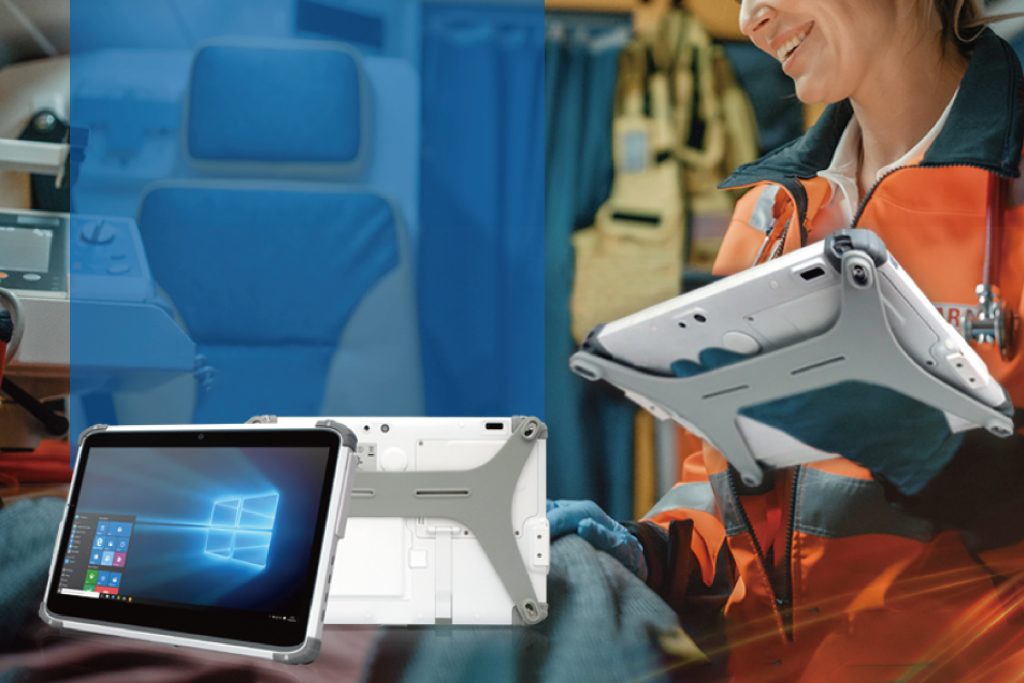
Emergency Medical Services (EMS) operate in high-stakes environments where every second counts. With advancements in technology, the integration of telehealth into paramedicine is transforming how emergency care is delivered. At the forefront of this technological revolution are rugged medical tablets, which provide EMS professionals with the tools they need to enhance patient care, improve efficiency, and ensure reliable communication in the most demanding situations. In this blog, we will explore how rugged medical tablets are revolutionizing telehealth in EMS, their benefits, and why they are indispensable in modern paramedicine.
The Rise of Telehealth in EMS
Telehealth, the use of digital information and communication technologies to access healthcare services remotely, has seen significant growth in recent years. In EMS, telehealth allows paramedics to connect with physicians and specialists in real-time, facilitating better patient outcomes through immediate expert consultation. This integration is particularly crucial in rural or underserved areas where access to specialized care is limited.
Benefits of Telehealth in Paramedicine
- Immediate Access to Medical Expertise: Paramedics can consult with doctors and specialists while en route to the hospital, ensuring that patients receive the best possible care even before arriving at a medical facility.
- Improved Decision Making: Real-time data sharing enables more informed decision-making, which can be critical in life-threatening situations.
- Enhanced Patient Monitoring: Continuous monitoring and data transmission ensure that healthcare providers are updated on the patient’s condition at all times.
- Resource Optimization: Telehealth can reduce unnecessary hospital admissions by allowing paramedics to treat patients on-site or provide accurate triage information.
The Role of Rugged Medical Tablets
Why Medical Tablets?
Rugged Medical tablets are designed to withstand extreme conditions, making them ideal for the unpredictable and often harsh environments that EMS personnel encounter. Unlike standard tablets, rugged medical tablets are built to endure drops, vibrations, water exposure, and extreme temperatures, ensuring reliability when it matters most.
Key Features of Rugged Medical Tablets in EMS
- Durability: Rugged medical tablets are built to military standards, ensuring they can withstand the rigors of the field. This durability reduces downtime and repair costs, which is crucial for EMS operations.
- Long Battery Life: EMS shifts can be long and unpredictable. Rugged medical tablets offer extended battery life, ensuring that paramedics have a reliable tool throughout their shift.
- Sunlight Readability: Emergencies don’t always occur in optimal lighting conditions. Rugged medical tablets have high-resolution screens that are readable in bright sunlight, ensuring that critical information is always visible.
- Connectivity: With built-in LTE, WiFi, and GPS capabilities, rugged medical tablets ensure seamless communication and navigation, which are essential for timely response and coordination.
Integration of Telehealth with Rugged Medical Tablets
Real-Time Video Consultation
Rugged medical tablets enable paramedics to conduct real-time video consultations with medical experts. This feature is particularly useful for complex cases where immediate specialist input is required. High-definition cameras and reliable connectivity ensure that the video feed is clear and uninterrupted, allowing for accurate remote assessment.
Electronic Health Records (EHR)
Rugged medical tablets facilitate the seamless integration of Electronic Health Records (EHR), allowing paramedics to access and update patient records on the go. This real-time access to patient history and data ensures continuity of care and helps in making informed treatment decisions.
Advanced Diagnostic Tools
Modern rugged medical tablets come equipped with advanced diagnostic tools, such as portable ultrasound devices, which can be connected via BT wireless connection or USB. These tools enable paramedics to perform essential diagnostic procedures in the field and transmit the results to specialists for immediate interpretation.
Medication Management
Rugged medical tablets can store and manage medication databases, providing paramedics with quick access to drug information, dosage guidelines, and potential interactions. This feature is crucial for ensuring safe and effective patient care, especially in high-pressure situations.
Future Trends
Artificial Intelligence (AI) Integration
The future of telehealth in EMS will likely see the integration of artificial intelligence (AI) to further enhance diagnostic capabilities and decision-making processes. AI algorithms can analyze patient data in real-time, providing paramedics with predictive insights and treatment recommendations.
Expanded Connectivity
As 5G networks become more widespread, the connectivity of rugged medical tablets will improve, allowing for faster and more reliable data transmission. This advancement will further enhance the effectiveness of telehealth in EMS.
Rugged medical tablets are proving to be a game-changer in the field of EMS, particularly in the realm of telehealth. Their durability, connectivity, and advanced features make them indispensable tools for paramedics, enabling them to provide high-quality care even in the most challenging environments. As technology continues to evolve, the integration of telehealth with rugged medical tablets will undoubtedly play a crucial role in shaping the future of emergency medical services, ensuring that patients receive the best possible care wherever they are.

